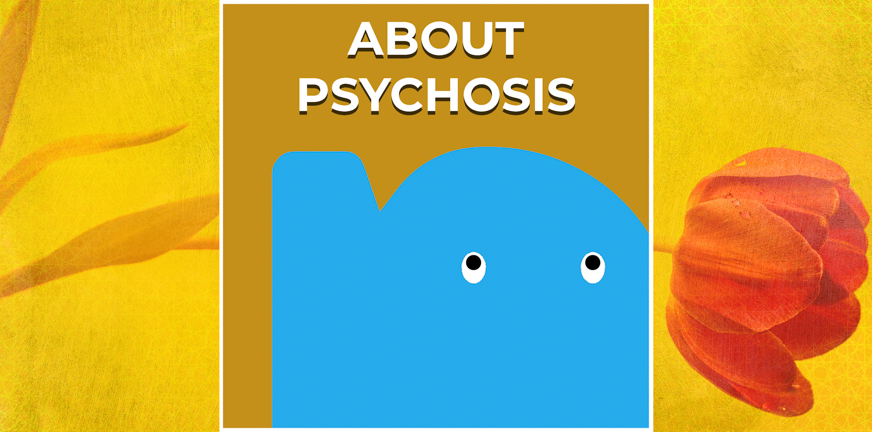
What is psychosis? What are the common symptoms, and what do we know about possible causes? Can you recover from it and how? Here we provide down to earth, useful information. We’re also working on an overview of the available help in your country.
What is psychosis?
A touch of psychosis is not always a bad thing. Scientific studies show that it happens to a lot of people at some point. But it can be a problem when psychotic experiences become more serious, last longer and occur alongside depression, mania or changes in motivation or ability to think.
Symptoms of psychosis
Psychosis is a combination (syndrome) of a number of different types of symptoms. The exact combination is different from person to person. For instance, someone could mostly be having feelings of mistrust, while someone else is mostly hearing hostile voices. Others can suffer from mood swings, feel deeply sad and sluggish (depression), or feel depressed one moment and extremely upbeat and hyperactive the next (manic).
The 5 stages of psychosis and recovery
Having a psychosis is very unsettling, but most people manage to recover from it. Typically there are five stages from the time of your first psychotic experiences to the time you have learnt to deal with them. The course of psychosis and the following recovery, is best described as a process in which you steadily gain control of your life.
Learn more about the 5 stages.
Causes of psychosis
What exactly causes psychosis, is not fully understood. Sometimes it runs in the family and vulnerability is passed on from one generation to the next. There can also be a clear connection to personal traumatic experiences, or drug use. Studies show that both genetic sensitivities and environmental factors can play a part.
Learn more about the causes of psychosis.
Diagnosis
Many people who experience psychotic symptoms are also suffering from other issues such as depression, mania, or problems with motivation, planning and learning. The combination is different from person to person. Psychiatry tries to create order in the chaos of all these syndromes through traditional diagnoses, which often have an name that starts with ‘schizo-’. These diagnoses may or may not be helpful.




